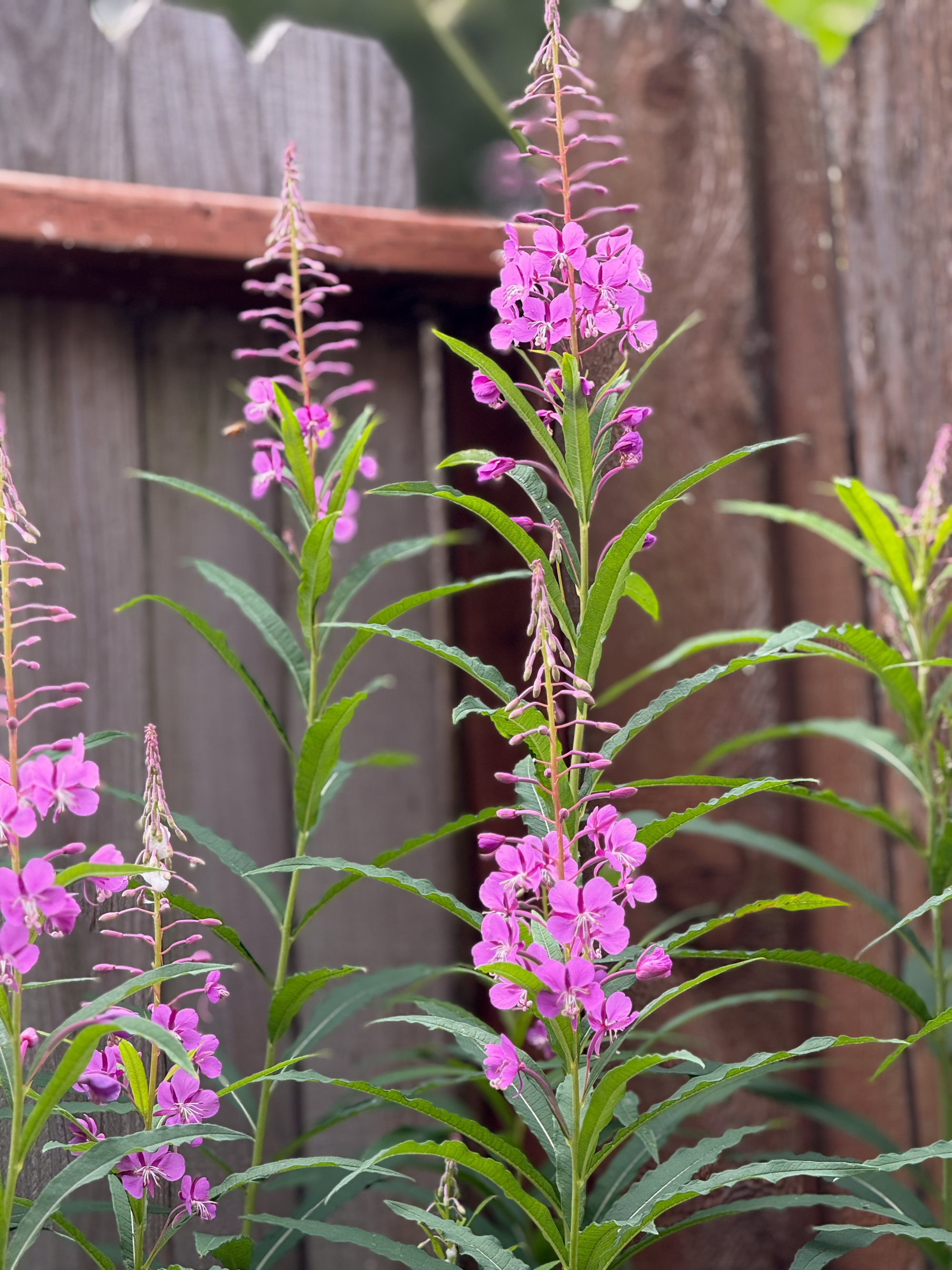What is love if it's not attentive?
There is no human who can know my land (or love it) better than me.

Human love is a spectacular thing. I think of the fireworks of new romance, the warmth of family love, the joyful dance of friendship. But what about human love for non-human beings? I think of my dog, how I like to find the best spots to scratch him. When he was a puppy, I fed him a taste of each ingredient while I cooked so we could both learn what he liked best. (Any kind of meat, of course, but also yams and spicy lentils. And carrots. Sometimes. Never anything green.) As I sit with memories of so many kinds of love, I feel that little flame in my heart. You know, like the one you see sometimes in portraits of christian saints.
Then I think of my yard, and suddenly my inner compass shifts. There are tasks to be done. There is frustration. There is methodology–a litany of techniques and chemicals and tools, some of which I understand and many I do not. There is the weight of learning that the (non-native) clover I have been cultivating all summer for the birds and bees may not be the best ground cover for the pollinators in my region. (Once I finish writing this, I'll hop on a webinar to learn more. There is always more to learn.)
But something feels off. I want to love the land, but this does not feel like love. I imagine a friend or lover approaching me with methodology. "I got you a rose. Women like roses!" when he never asked me about my favorite flower. Or, "We are going to eat tuna casserole for dinner when you come over. It's healthy and budget-friendly!" without bothering to learn what I like or what my dietary needs might be. Or inviting the one person in our friend group they know I'm not excited to hang out with. Couldn't this just as easily be fertilizer and planting schedules and putting plants together that may not like one another?
Getting expert advice is not necessarily bad. I plan to spend the winter studying microbes and gardening. But, like expert advice on human relationships, it can be impersonal to the point of relational brutality.
Several people have asked me recently how I keep my indoor plants so healthy. They expect me to tell them "compost tea" or "I keep my humidifier on a timer." They are surprised when I tell them I just learned to pay attention. I don't even know the names of half of the plants. But I visit with them almost every day. I sip my tea and give them sips of water. I put my finger in the soil and remember what the soil felt like yesterday. I watch how they respond to the light. I learn the telltale signs of happiness and distress, and I learn to give them what they like.
I am about to learn which pollinators like the clover and which don't from someone who has studied pollinators carefully. I expect the advice to be beneficial, and I am grateful. But I also value the teachers in my own yard. The fireweed that volunteered along the fence that attracts as many bees as the clover. The moss that has grown healthier in the shade now that the grass is retreating and the mower only visits every six weeks or so. There is no human who can know them (or love them) better than me.
Your task this week is to come up with a way to pay attention to non-humans in and around your home, preferably over time. Can you create a ritual of visiting your plants in the morning? Would you find some new foods or treats for your pets to try? How can you approach them with a spirit of loving inquiry?
